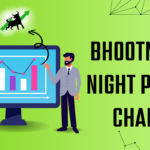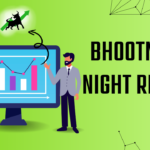Creativity is a driving force in our lives, influencing our personal and professional success. Whether you’re a business leader crafting innovative strategies, an artist expressing deep emotions, or a stay-at-home parent managing a bustling household, the pressure to produce original ideas is constant. This relentless demand can give rise to what we refer to as “mental load.” Understanding the origin idea mental load relationships is essential in this context, as it highlights how these pressures impact our interactions with others. But what does this mean for our relationships? Let’s explore the origins of mental load, its impact on creativity, and how it shapes our interpersonal connections.
Understanding Mental Load
What is Mental Load?
Mental load encompasses the cognitive burden associated with managing tasks and responsibilities. It’s not merely about juggling several duties simultaneously; it includes the mental effort of planning, organizing, remembering, and coordinating tasks—often for oneself and others. This invisible workload can lead to stress, anxiety, and burnout if not addressed effectively.
The Origins of Mental Load
The term “mental load” gained traction in discussions around gender roles, particularly within the household. Historically, women have been expected to take on the majority of the emotional and logistical responsibilities in managing family life, even when tasks are shared. This societal expectation contributes significantly to the cognitive burden experienced by many. Understanding the origin idea mental load relationships provides insight into the dynamics that often exist between partners, family members, and colleagues.
As we dive deeper, it’s essential to recognize that mental load is not gender-specific. It can impact anyone, regardless of their role in the household or workplace. The origins of this concept highlight the importance of equity in sharing responsibilities to alleviate mental load and maintain healthy relationships.
The Relationship Between Mental Load and Creativity
Creativity Requires Cognitive Space
Creativity thrives in an environment where the mind is free to explore and innovate. When mental load accumulates, it clutters cognitive space, making it increasingly difficult to generate original ideas. Picture an artist trying to paint a masterpiece while simultaneously worrying about unfinished chores or a looming deadline—such distractions can stifle inspiration.
In the context of origin idea mental load relationships, individuals who feel overwhelmed by their responsibilities may find it hard to contribute creatively, whether in their personal lives or within collaborative work environments. This reduction in creative output can lead to feelings of inadequacy and frustration.
Mental Load and Decision Fatigue
Decision fatigue is another significant outcome of mental load. As we navigate through our day, each choice we make requires mental energy. Over time, the cumulative effect of constant decision-making can deplete cognitive resources. When decision fatigue occurs, individuals may struggle to make even simple choices, let alone innovative ones.
This exhaustion can manifest in various ways. For instance, a partner who is already fatigued from work-related decisions may become reactive instead of proactive in their personal life, leading to conflicts and misunderstandings. This dynamic is crucial to understanding how origin idea mental load relationships can be affected.
Impact of Mental Load on Relationships
Communication Breakdowns
High levels of mental load can severely impact communication between partners. When one person is overwhelmed, they may become irritable or withdrawn, resulting in misunderstandings. For example, if a partner is stressed about work and snaps at a small issue at home, it can leave the other feeling confused and hurt. This miscommunication can snowball, leading to resentment and further distancing.
Navigating Communication Challenges
To counteract these breakdowns, it’s essential for partners to recognize when mental load is affecting their interactions. Practicing active listening and expressing feelings without judgment can foster a supportive environment. Using “I” statements can help clarify feelings—like “I feel overwhelmed”—which can facilitate more constructive conversations.
Reduced Quality Time
Mental load can diminish the quality of time spent with loved ones. It’s one thing to be physically present at a family dinner; it’s another to engage meaningfully. If one or both partners are distracted by responsibilities, the emotional connection can suffer. Think of a family gathering where everyone is glued to their phones—no one is truly connecting, leading to a sense of isolation even in shared spaces.
Reclaiming Quality Time
Intentionality is key in reclaiming quality time. Scheduling regular date nights, family activities, or even simple game nights can help re-establish connections. Engaging in activities that allow for fun and creativity can help relieve the mental load and reinforce bonds.
Increased Resentment
As mental load tends to be unequally distributed, resentment can build over time. If one partner feels they are consistently shouldering more responsibility—whether in planning, organizing, or managing daily tasks—they may feel undervalued. This imbalance can create a breeding ground for conflict.
Addressing Resentment
To mitigate feelings of resentment, it’s crucial to openly discuss responsibilities and expectations. Regular check-ins can help partners align their efforts and recognize each other’s contributions. Creating a shared list of tasks can also foster accountability and teamwork.

Strategies to Manage Mental Load
Open Communication
The foundation of managing mental load is open and honest communication. Discussing feelings, responsibilities, and needs with your partner can foster understanding and support. Establishing regular “check-in” conversations can create a safe space for both partners to express their thoughts and feelings.
Divide Responsibilities
Collaboratively dividing responsibilities is vital in lightening the mental load for both partners. Creating a shared calendar for household tasks, work commitments, and personal obligations can help visualize responsibilities. This transparency allows both individuals to see where support is needed and helps maintain balance in origin idea mental load relationships.
Prioritize Self-Care
Encouraging one another to engage in self-care activities is crucial for maintaining mental well-being. Whether it’s taking time for hobbies, exercising, or practicing mindfulness, prioritizing individual mental health can alleviate the overall burden of mental load in the relationship.
Limit Decision-Making Overload
Implementing routines can significantly reduce decision fatigue. Establishing regular meal plans, designating specific days for errands, or creating checklists for shared responsibilities can help streamline decision-making. By minimizing the number of choices, both partners can conserve mental energy for more creative and fulfilling pursuits.
Conclusion
The origin idea mental load is a multifaceted concept that profoundly affects our creativity and relationships. Understanding and addressing this cognitive burden is essential for maintaining healthy connections and fostering creativity in our lives. By recognizing the signs of mental load and implementing effective strategies to manage it, we can enhance our well-being and the quality of our relationships. In a world where creativity and connection are paramount, reducing mental load can lead to a more balanced and fulfilling life.
FAQs
1. What is the primary cause of mental load?
Mental load often arises from managing multiple responsibilities and tasks, particularly when those tasks involve planning and organizing for oneself and others.
2. How can mental load affect creativity?
A high mental load can clutter your mind, making it difficult to think creatively and come up with original ideas.
3. What are some signs of decision fatigue?
Signs include feeling overwhelmed by choices, difficulty making decisions, and increased irritability or frustration.
4. Can men experience mental load as well?
Absolutely! Mental load can affect anyone, regardless of gender. It often depends on individual circumstances and responsibilities.
5. What steps can I take to reduce mental load in my relationship?
Start with open communication, share responsibilities, prioritize self-care, and implement routines to streamline decision-making.














